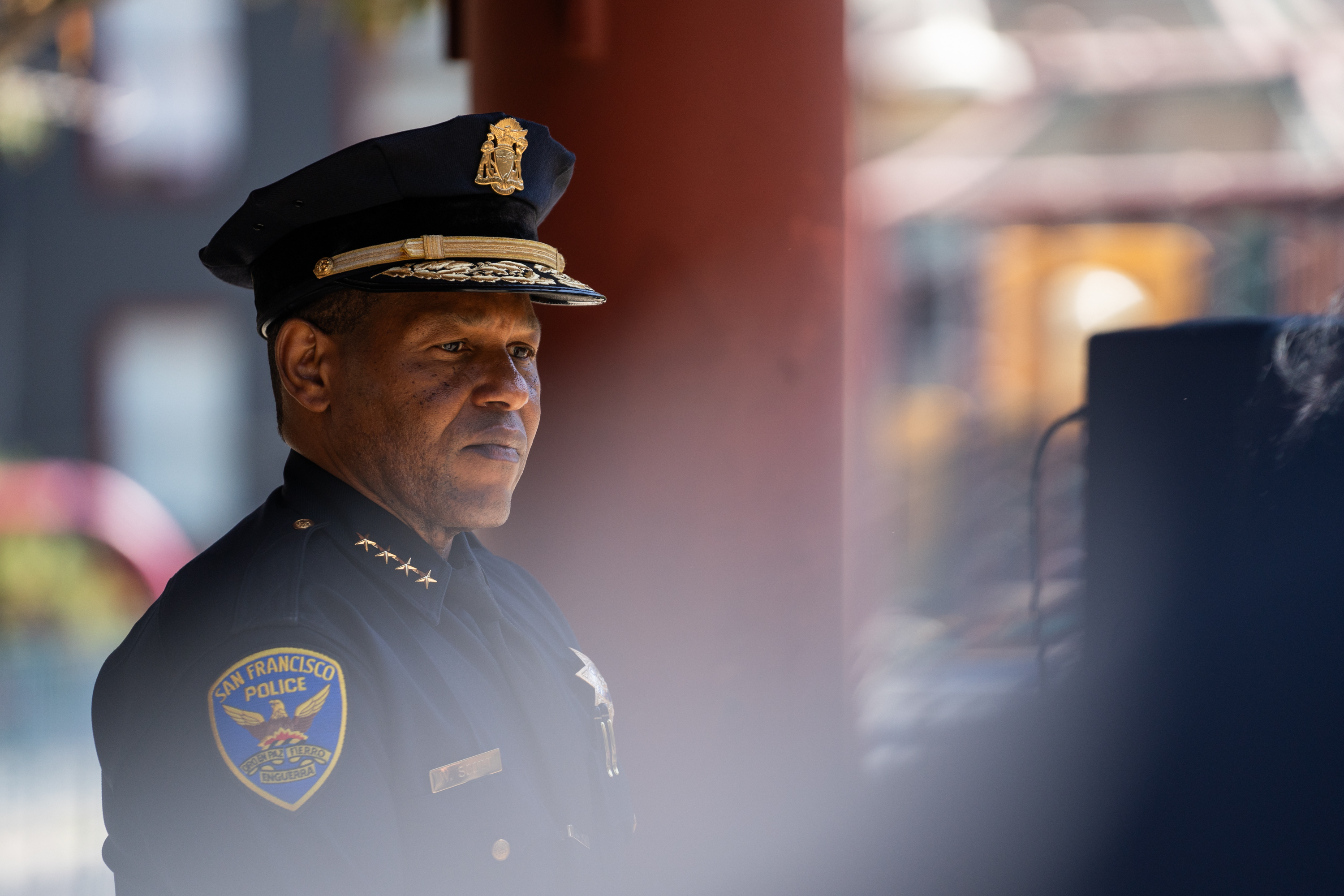Seven years ago, then-San Francisco mayor Ed Lee hired Bill Scott to head a San Francisco police department plagued by a scandal around racist text messages and a troubling series of fatal police shootings—all of which sparked a protest movement that helped oust a police chief and launch reforms.
The reform initiative that began in 2016 was meant to transform the department by putting into place a series of changes around how officers went about their jobs, especially when it comes to policing the Black and Brown communities in San Francisco.
Now, Scott is set to announce Friday in a City Hall ceremony that the SFPD has submitted the 27 outstanding reform recommendations to the state Department of Justice.
Scott said in an email Thursday, which was obtained by The Standard, that he will announce what he called a “key milestone in the journey of the San Francisco Police Department towards comprehensive reform.”
The department has an “ongoing pattern of violence, misconduct, and discrimination against communities of color.”
ACLU
In all, the department was initially given 272 recommended reforms by the federal Department of Justice. Now, if the state DOJ, which began the reform oversight in 2018, agrees that the city has met those goals, it could mean the collaborative reform effort that has defined the department for years will come to an end.
The announcement comes a month after voters approved Proposition E, which critics say set back reform efforts by neutering the oversight authority of the civilian police commission and empowering the department in ways that could lead to new abuses of power.
“It’s good that they’re finishing up this work. It’s unfortunate it took so many years,” said former DA Chief of Staff Cristine Soto DeBerry.“Though they’ve checked off some of these marks, there continues to be the challenge of them going in the opposite direction.”
Soto DeBerry—who now heads the Prosecutors Alliance of California—said the recent passage of Proposition E runs counter to these lauded reforms. For instance, allowing SFPD to engage in more high-speed chases, which the proposition does, will unnecessarily endanger civilians and could result in civilian deaths as statistics around police chases show.
“This department is not the same department that embarked on this process,” said Police Commissioner Kevin Benedicto. “But I also think there’s a lot more work to be done.”
The department’s reforms include everything from preventing biased policing and limiting the use of force to ensuring unbiased hiring and improving crisis intervention.
In a February 2022 letter, the Department of Justice pointed out that the department had reduced its shooting of civilians by 43% from 2017 to 2021, and its disproportionate use of force against Black people has declined over that period as well.
While police shootings and killings of civilians have dropped and many benchmarks for reform have been met, critics contend that no matter what milestones the department plans to announce, it is far from reformed and remains plagued by some of its worst practices.
The department has an “ongoing pattern of violence, misconduct, and discrimination against communities of color,” the ACLU wrote in a letter opposing the eventually passed Prop. E, which it called a “dangerous and misleading proposal that knocks down three pillars of police reform: oversight, accountability, and transparency.”
The reform era began in 2016 when San Francisco District Attorney George Gascón launched a blue-ribbon panel to investigate the department and recommend a series of reforms.
While those recommendations were seemingly ignored, later that year, then-Chief Greg Suhr teamed up with the federal Department of Justice in the collaborative reform effort.
But Suhr didn’t last long enough as chief to shepherd the department through its reforms. Scott took over the department soon after, especially tasked with completing the reforms.
